Who the hell is Tony Pellegrino?
Tony Pellegrino is a racer, a businessman, a father. The CEO of Genright off-road Tony has spent the last sixteen years building his passion into an empire. Fueled by constant innovation from the competition of racing his company GenRight off-road is one of the leading Jeep aftermarket companies in the market today. Now Tony is joined by his two sons in business and racing as he continues to create new products and share his love for off-roading with new people.
Matt Martelli:
How was testing?
Tony Pellegrino:
Oh, testing, really good. We did 350 miles on the car and that got finished with two days of shock tuning with Fox, so it's feeling pretty dialed right now. The car is staying together. Everything's looking like it's going to be good.
Matt Martelli:
This was mostly for Jordan's car in preparation for King of The Hammers?
Tony Pellegrino:
Yes.
Matt Martelli:
Tell me a little bit about that car because that's a relatively new car, right? It is.
Tony Pellegrino:
It is and it's super cutting edge because it's not only independent front suspension, but independent rear. On top of that, it's got portal hubs at each corner.
Matt Martelli:
And that gives you a little bit more travel?
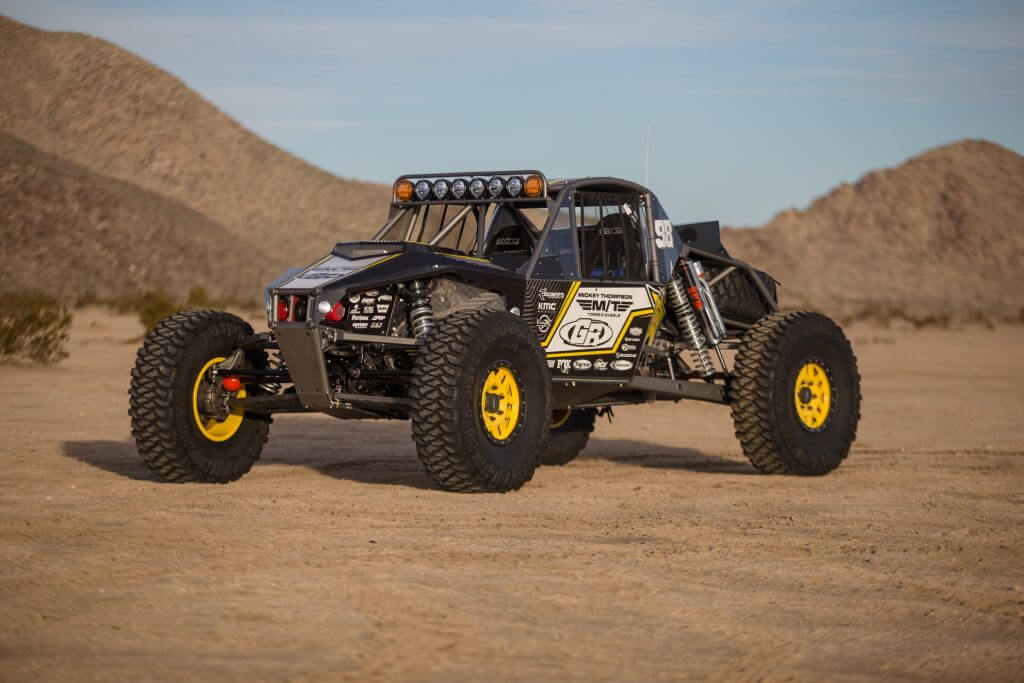
Tony Pellegrino:
Yes, More ground clearance and travel. We have four and a half inches more ground clearance than all the other IFS cars. As you know, when you go through the suspension stroke, that bulkhead just comes right down to the ground. Well, now he's got more clearance than everybody else.
Matt Martelli:
That's really cool.
Tony Pellegrino:
It's also a fairly light car. Most 4400 class cars are 5,500 pounds and his is 4,400, so it's quite a bit lighter.
Matt Martelli:
Yeah, that's cool. Was the influence to go to portal hubs from trophy trucks or was that someplace else?
Tony Pellegrino:
What's funny is, is we actually started that. I think the manufacturers that made that stuff started talking to everybody in all kinds of off-road applications and I think everybody adopted it at the same time.
Matt Martelli:
What do you mean when you started it? You guys started using, implementing it first?

Tony Pellegrino:
Yeah. The guy that designed this car, the very first portals that he made, it's Quinn Pultz out at74 Weld. He's down there in El Cajon. Yeah. He is making them for other trophy truck guys too. He's got a four gearbox now and some other stuff. But yeah, I think he got together with Igor out at Triton Engineering four years ago and he was building a car for himself. We saw it and said, "Okay, we want something like this." We could see this is where things are going.
Tony Pellegrino:
The problem with a new car is, it's been nothing but problems, right? It's this cutting edge, which is great, but now we're just having to test run everything and get all the bugs worked out. That's been a long road. So yeah, some of the manufacturers just aren't as eager to help guys like us get it all dialed. So one of those deals.
Matt Martelli:
Yeah. No, it's always interesting to me that this culture constantly R&D stuff that then gets absorbed into not just race vehicles but production vehicles, right?
Tony Pellegrino:
Yep.
Matt Martelli:
And then it's like magically the technology appears and I always like to point out where it came from.
Tony Pellegrino:
The portals have actually been the least of our trouble. It's been the differentials. We're working with Jason out of Tubeworks and he is one tough guy to work with. So we've just had to take that over ourselves and run with it and that's when we started making some headway.
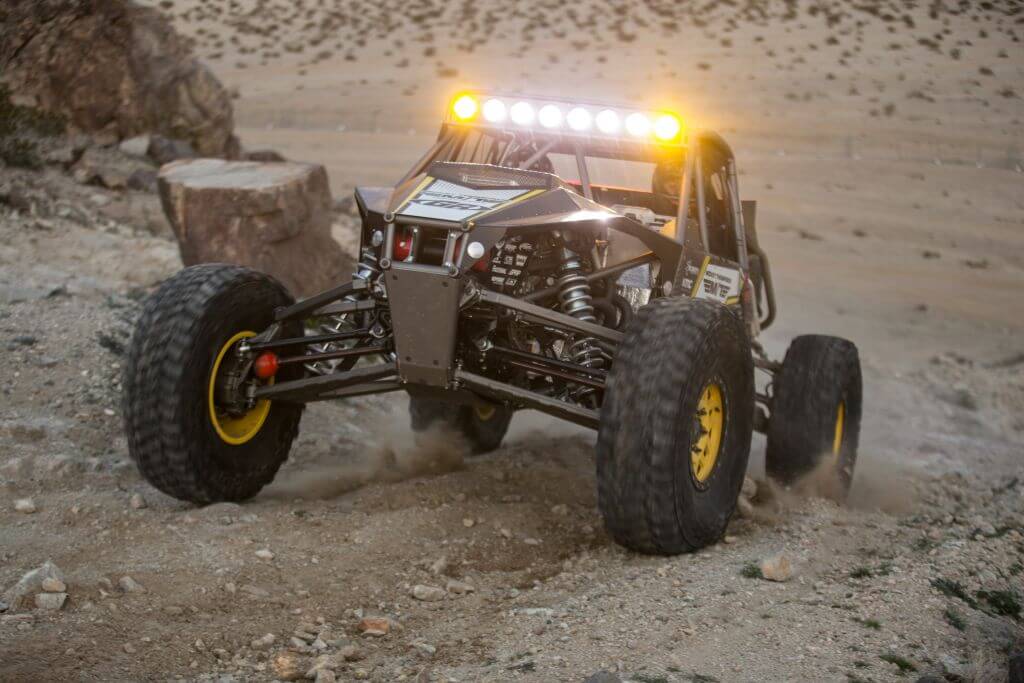
Matt Martelli:
So are you making your own differentials or are you?
Tony Pellegrino:
No, we're still using his cases, but we had to figure out how to using the water from the radiator to help cool them. The oil runs through a heat exchanger, so they just get super hot because they're buried in the center of the car.
Matt Martelli:
Right. Oh, gotcha.
Tony Pellegrino:
Yeah. Where a normal axle is out there floating in the air and getting some cooling going on. So it's just stuff like that. We're using the same engine and transmission transfer case that we've used for many years in our other 4400 cars. So we've got that side of it, we feel good about being dialed in. So it was really just this. And quite frankly, those CVs and all that is a maintenance nightmare. Oh my God. They're so much work, which we're just not used to because we come from solid axles.
Matt Martelli:
Right, right. So what diffs are you using?
Tony Pellegrino:
That's the Tubeworks ones.
Matt Martelli:
That's really cool. Do you think that all this technology that you learn in racing, does that transfer to the products that you build for GenRight?
Tony Pellegrino:
Well, what it does is it sets the bar, right? So when I know you can get such a level of performance out of an off-road vehicle, like a certain ride quality, or we've made it beefy enough to stay together and I can take those same material thicknesses or that grade of high metal, or even right down to the drive shafts where we're using JE Reel and we know that stuff stays together and that's what we use on Jeeps then.
Tony Pellegrino:
Racing definitely sets a standard. From my perspective, that's what sets us apart from every other Jeep parts manufacturer out there is that we're entrenched in this and live, eat and breathe it, and we use what we learn in racing in the parts that we build..
Tony Pellegrino:
The example of that was me racing, my JK, what we call The Terramoto last year. We took off the shelf everything, brought it down and raced it in the unlimited class, 4400. That's totally unheard of. We were the first guys to do that and finish.
Matt Martelli:
That says a lot for the durability of your product.
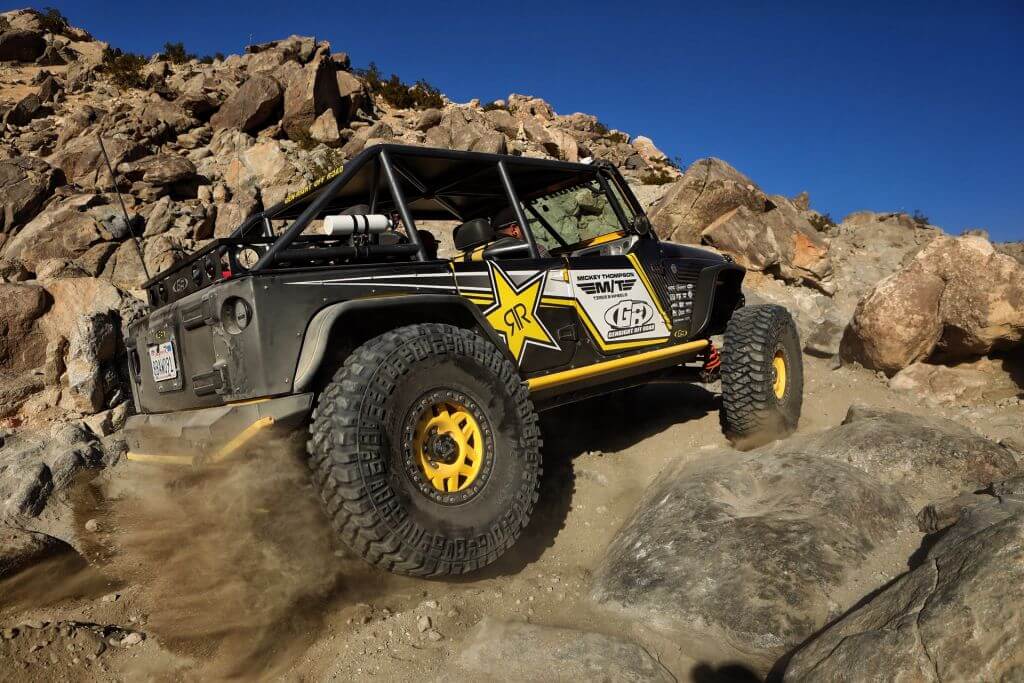
Tony Pellegrino:
I'll tell you, our sales took off right after that. I didn't think that many people were paying attention, but they were. So now, there's 10 people building clones of that Jeep, exactly. Which is pretty cool.
Matt Martelli:
That's really cool. Before I forget, what do you call your son's car? What is that car called?
Tony Pellegrino:
Jordan calls it The Unicorn. It's number 98.
Matt Martelli:
Tell me about how you got into the manufacturing site. How was GenRight born?
Tony Pellegrino:
That was really out of my own necessity. I had a Jeep, just like many people have Jeeps. As you start using them, you realize that the stock axles just don't cut the mustard, so you put in bigger axles. Well, there's no clearance for that bigger axle. The moment you put it in, it smacks the gas tank skid plate in the back. My first product was a reshaped gas tank and skid plate, matching a heavy-duty skid plate because the factory ones are cheesy sheet metal, and it's a plastic tank.
Tony Pellegrino:
I reshaped it so that you could not only fit the bigger differential, but then you could move it back because the wheel base on a Jeep is just a little too short. At first, everybody wanted to move three inches back and then five inches, and now it's seven inches. But we've got gas tanks that facilitate those three steps. They reuse all the factory stuff. So whether it's the filter hose, or the fuel pump, or the evap system, we just reuse everything. It's a real seamless install.
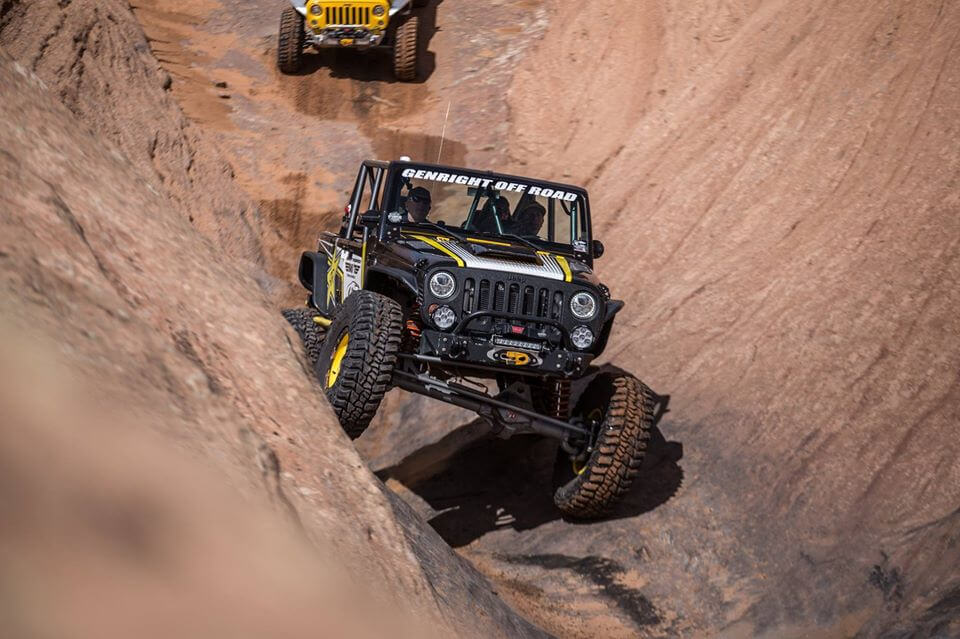
Matt Martelli:
And so you start with this one product. How many years ago was that?
Tony Pellegrino:
16 years ago
Matt Martelli:
And so did you ever think that your business would be the scale that it is now and that you'd be basically one of the leaders that's leading, not just sales but constant innovation?
Tony Pellegrino:
I mean, I hoped. When I first made that gas tank, I had gone around to different people in the industry, off-road shops and different manufacturers, and nobody seemed interested in really either innovating or developing new product. Quite frankly, off-roading might have got those guys into business in the first place, but it had been years since any of them have been off-road. So they were super out of touch with the market. That really bummed me out. If you're going to ask for people's money, man, you better be giving them something of value. Since I'm in this all the time, it's super easy for me to do this stuff. What I'm really good at is coming up with products that people don't even realize they need. Nobody realized they needed the gas tank until I showed it to them. And then they're like, "Oh my God, this is awesome. Now I can move my axle back or get the bigger axle"
Tony Pellegrino:
A lot of what I do is trying to find those niches. Honestly, it's not hard for me because I'm doing it all the time where I just go, "Well, I could use this so therefore many people could use this."
Tony Pellegrino:
But what's funny is when I first came out with the gas tank, my intention wasn't to start my own company and do all this stuff, I wanted to sell the idea, right? I just wanted to go to Kilby, or Fabtech or somebody, and they loved the idea. That they were like, "Dude, we're in." But the difference was is they said, "Well, that's weird because nobody's asking for this product." That's when the light bulb went off for me. And I just went, "That's how out of touch these guys are. They can't even recognize something new and innovative when it smacks them in the face." Right?
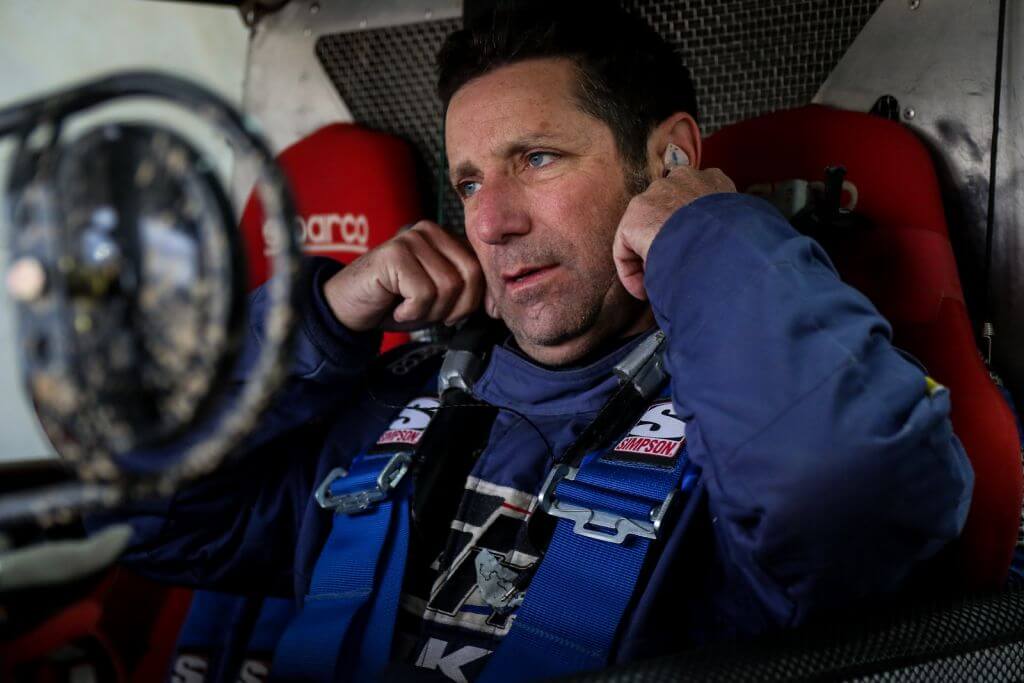
Matt Martelli:
I think that's true of evolution of business and culture is like you get these guys who think they've got control of the market and they stop innovating. To your point though, it's interesting because I personally learned this with Action Sports. It was like the whole industry was started so that we could surf more. Then everybody got caught up and everybody stopped surfing, right? It was like, "Oh wait, what are we doing here?"
Tony Pellegrino:
Yeah, it took the fun out of it. Exactly. Yep.
Matt Martelli:
Both of your sons work for you, correct?
Tony Pellegrino:
Yes, both of them work with me now.
Matt Martelli:
Obviously, raising kids is a whole thing in itself, but how much do you love the fact that your sons share your passion and work with you?
Tony Pellegrino:
I do love it. It's a blessing and a curse at the same time. There's the side of it where they see the reward when you do good, right? So they've watched me over time just with racing, right? Where you get on the podium, you're doing well, the sponsors are chasing you. They love the limelight of course like anybody, but there's a lot of work that has to go into making things go well. That’s what Jordan is learning right now with his car.
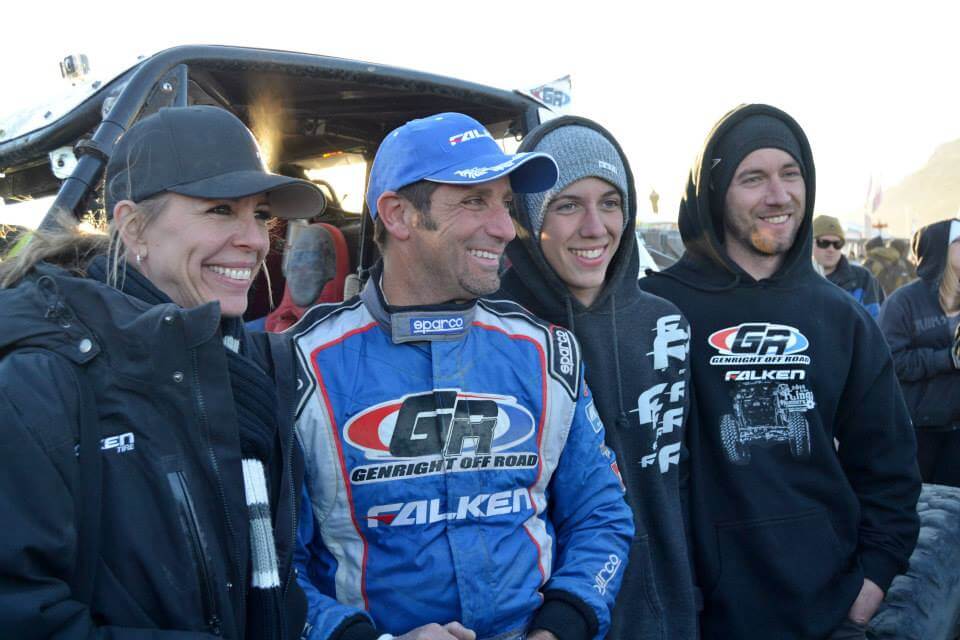
Matt Martelli:
Sure.
Tony Pellegrino:
Sometimes it's a little tough. I had to work really hard for those sponsors. But now, when Jordan came on, they just transferred over, right? So he didn't have to work quite as hard. It's that kind of stuff where I don't always like being heavy. I just want people to look at the opportunity they have and go.
Matt Martelli:
Sure.
Tony Pellegrino::
But that rarely happens, I mean, with any employees we have.
Matt Martelli::
And so now are both of them racing?
Tony Pellegrino:
Jami raced for three years in a side-by-side, but that thing was pile. It was so bad. We ended up remaking everything on that thing. It just took a lot of his time. Because it wasn't something we made parts for and sold, it really wasn't something that was easy for us to get behind, right? So I kept telling him, I'm like, "Dude, you need to race a Jeep or something. Then the company could support that." So over time, he got rid of the side-by-side, he found somebody who wanted it. Now he's building, he's actually building my original Jeep that I started the company with that we call the Growler. He's giving it a total update and it's really going to be cool. There's so many people in the Jeep community that know that Jeep and are anticipating its revival so that's really cool too.
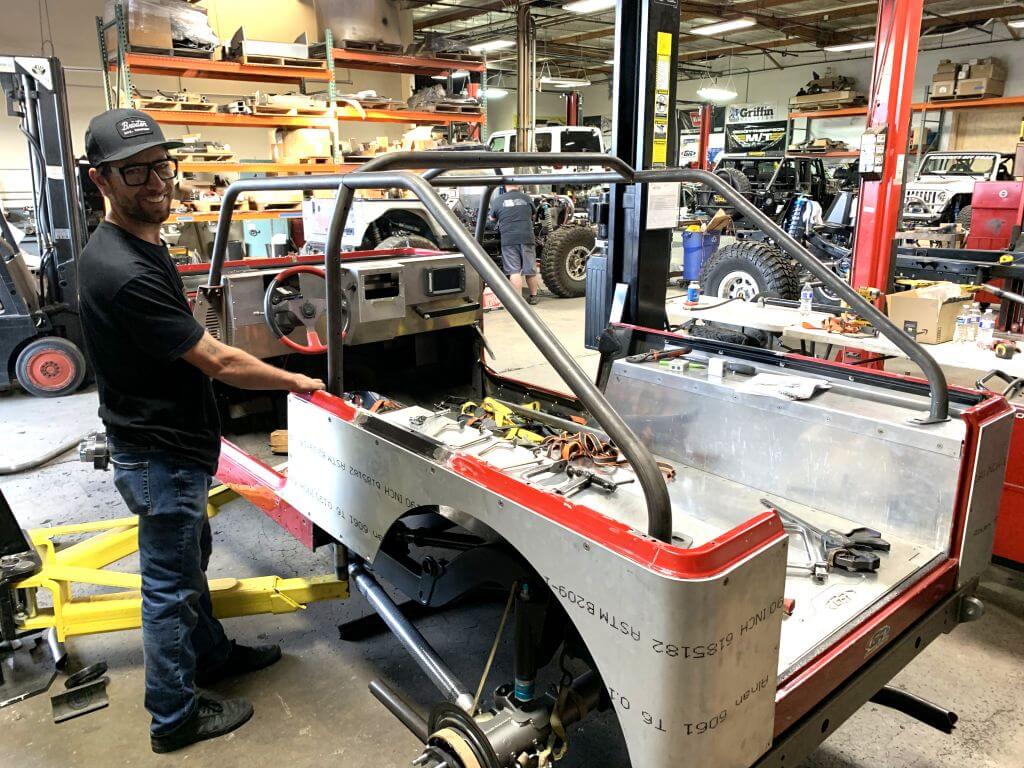
Matt Martelli:
That’s cool.
Tony Pellegrino:
He's more on the business side right now anyways. He does a lot of our website stuff. He does all of our graphic design, videos, and photography. From the business perspective, he's gone on a lot of sales trips with me where I'm calling on dealers or at shows. So he'll be able to take some workload off me at some point where especially once he's got this Jeep and people really know him. Because right now, they confuse him with Jordan. They're like, "Are you the racer?" And he's like, "No, no, no, that's my brother." The Growler is going to give him his own identity, which will be really good. He's 30. He's a little bit older than Jordan. Jordan is only 22. So all Jordan does is work on that race car. His full-time job is to work on that race car and drive it.
Matt Martelli:
Let's talk about your connectivity again to racing. I mean, like you said, last year, you raced. You continue to race. Do you think that that's important to just stay connected to the culture?
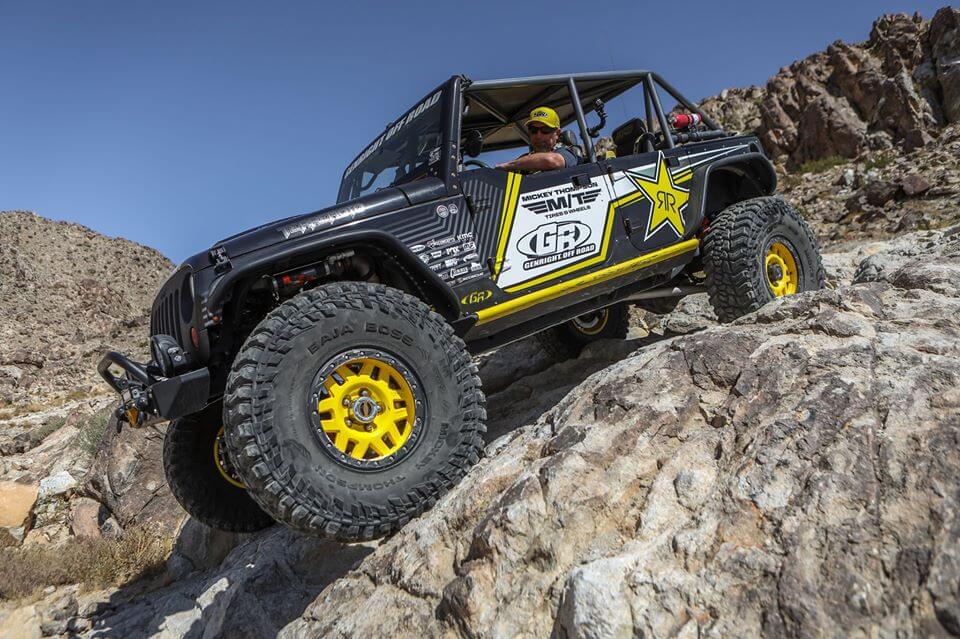
Tony Pellegrino:
Well, I think that my involvement in racing whether it's the team manager for Jordan or racing myself is important to still be involved. Jordan still heavily relies on me for knowledge. This last week when we were out shock tunning with Fox, he said, "Dad, would you drive my car? I want your opinion on what it's doing." And then he and I would collaborate. And then tell Mike, "Okay, here's what we want changed." And then go back out and try it again. So I'm still entrenched in it no matter how I look at it.
Tony Pellegrino:
I was going to tell you, with all these people building the clones of our Jeep, if they get them done and they want to race, I was going to either talk to you, or Dave, or somebody to create a class for them. And then I would go race with those people just to keep them excited. Because I'm all about inspiring people and getting them out there to have fun. If they're motivated because they want to come race with me, then cool. Let's go do it. I love dicing it up with the next guy.
Matt Martelli:
Well, yeah, I mean, that's another part of something that I've seen you do by doing these rides after King of the Hammers is being a cheerleader for off-road culture and bringing out new people.
Tony Pellegrino:
For sure. Even when we go to the different Jeep events, that's one example, and that's a good one there at KOH. But when we go to all these Jeep events, I invite people to go for a ride. Our suspensions, our vehicles are so much better than anything they've ever been in that I always want them going for a ride so that they can understand what their Jeep could be doing. If this is going to be their thing, this is what they want to work toward.
Tony Pellegrino:
I'm just trying to give them something to aspire to as well and get excited about it. I know it was the same for me the first time I got a ride in a trophy truck or an Ultra4 car, I was blown away at what they could do. It just made me go, "Oh man, we can do more with these things. Let's make them better."
Matt Martelli:
Totally. I think that's really cool. The potential to have a Terremoto class, I think, would be a no-brainer just because there really needs to be a class in-between Jeep speed and an Ultra 4 basically.
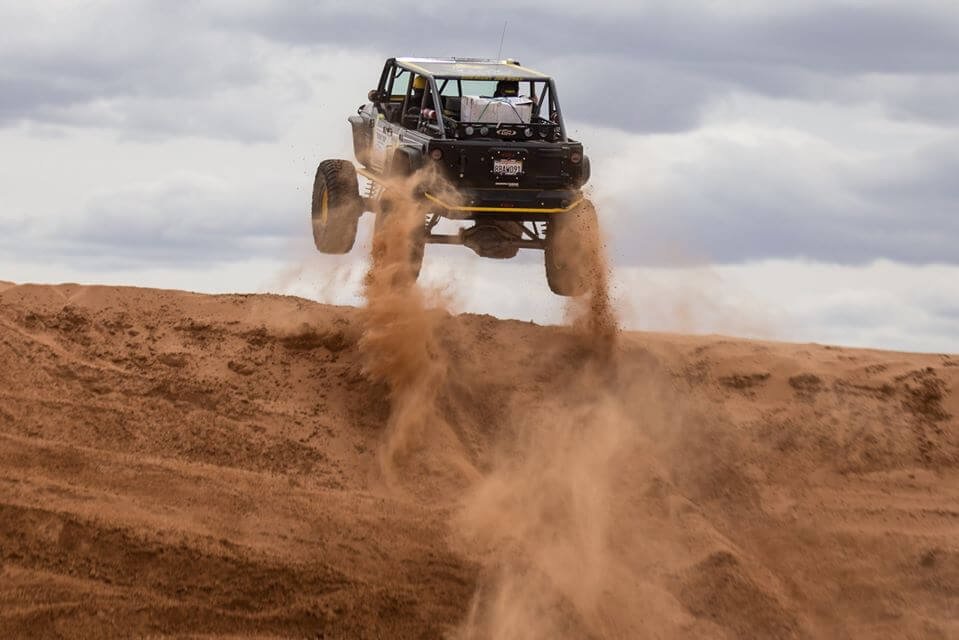
Tony Pellegrino:
Correct, correct.
Matt Martelli:
That's a big gap.
Tony Pellegrino:
It's a big gap. Most people have Jeeps, they're more built like the Terremoto. I'll give you an example. We build Jeeps all day long for people and every single one goes out on 40s or 42s. None of those people, none of them are even remotely interested in dropping to a 37 to race in an established class. Nobody, not at the Hammers, a 37 is like riding a mountain bike out there.
Matt Martelli:
Yeah, totally.
Tony Pellegrino:
It's ridiculous.
Matt Martelli:
I'm still a go fast desert guy. I'm still amazed that people tackle the Hammers and are stoked about it. It's just so brutal. It's radical. I love it. But I'm always just thoroughly impressed every year when all these people just show up and they're just like, "We're going to just mangle ourselves and all of our equipment to say that I did this," which is cool. It's one of the greatest powers of King of the Hammers and off-road racing in general. So going forward, you're going to be more working with your son and being an ambassador versus being the guy that's racing.
Tony Pellegrino:
Yeah, probably. Racing has always been a passion for me. I love it, but it is a big distraction from the business. We're big enough now where I've got to make sure I've got time for both, where I can't just excuse myself for three months to get the car ready. Does that make sense?
Matt Martelli:
Absolutely. Let's switch over to the business side because obviously that's what pays the bills, but talk a little bit about GenRight and some of the new products that you've been developing and have coming out.
Tony Pellegrino:
One of the newer products that I've got out right now is something that I wanted to do for years and years and years. It's really simple and it's only 150 bucks, but it's an access plate to the rear fuel tank where you can get to the pump and look at the plumbing and the wiring and everything. So I finally did it, did it about six months ago or whatever it was. That's that innovative idea I was talking about where you're not reinventing the wheel, you're just giving people access to this stuff and making it so it works.
Matt Martelli:
Yeah, absolutely. I mean, that's been the whole history of innovation. So yeah, that's cool. Are there any other products that you want to preview or talk about?
Tony Pellegrino:
I mean, the new, new stuff that we're working on is the suspension for the JL, which is the new Jeep and the Gladiator. We're introducing our next level, even above what we've got available for the JK and on my Terremoto, this next step is really we've upped our game on this, for sure. So we're looking forward to having that out. That's in development right now. It'll probably be done by the end of the year. A little bit at a time I'm talking to people about it on those live shows that I'm doing.
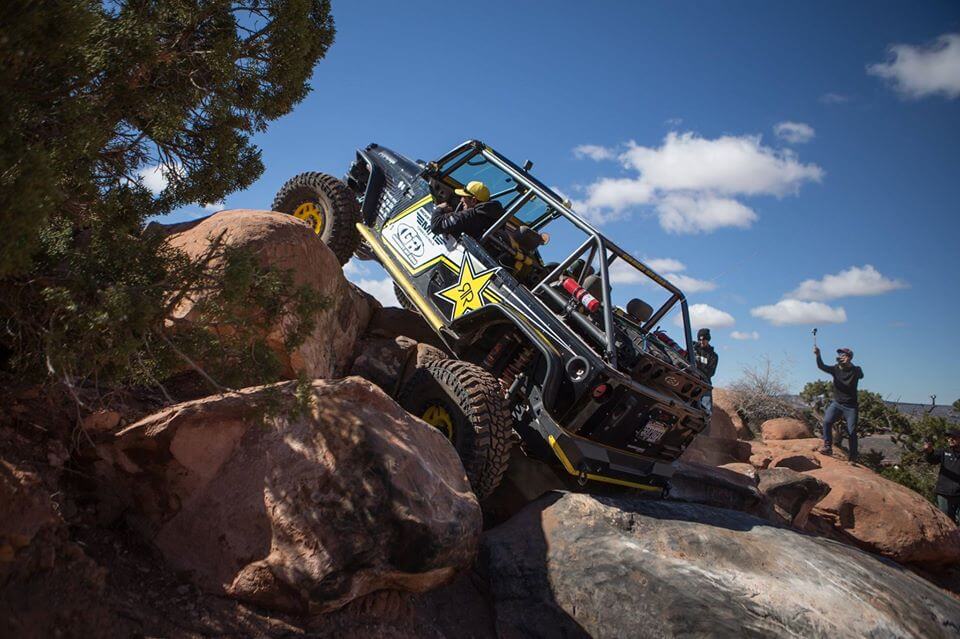
Matt Martelli:
Let's talk a little bit about the live shows. I mean, a couple years ago you were basically barely on social media and you really embrace it. You told me it's done wonders for your business right?
Tony Pellegrino:
Yeah, that was a shift too, because that's not the way I'm used to doing business, but it's great. It's working good.
Matt Martelli:
What helped you get over that hump of being comfortable in front of the camera or being okay with that idea?
Tony Pellegrino:
I mean, certainly with COVID I was forced, right? You can't go to any events, you can't do anything. I didn't want to just stop promoting, right? That just forced my hand. I mean, what I struggle with is my time. So much of our society is on their phone. I'm always trying to fight that. But it's the way we're doing stuff now. Magazines are gone. It's your way to reach people in mass, right? I can still go to events and do that stuff, but what do you touch, a couple hundred people maybe? That's the difficult part.
Tony Pellegrino:
I know once people talk to me, if you're a Jeep guy and you talk to me, you'll know right away that I'm the real deal. There's no doubt in your mind. By the way, the Jeep guy can tell who's not. They know right away when somebody is using slightly the wrong terminology or is talking about something that everybody did a few years ago and not about where things are going. They know right away and they're just like, "Yeah, I'm out. This guy doesn't know shit."
Matt Martelli:
Yeah, absolutely. Any other things that you want to talk about in terms of business, or racing, or family, or just things connected?
Tony Pellegrino:
I mean, for me, I loved racing Ultra4 and that did, in the early years, that crossed over into Best In The Desert and some of that stuff. I love building the cars. I love building as much as I do driving. It's that kind of stuff for me where I want to build it better, do it better, show that we know what we're talking about. A lot of that is earning credibility and really being on your A game.
Tony Pellegrino:
So other than that, we're like any other small business trying to rub two nickels together. Doing business in California isn't easy, doing business, period, when you start talking about COVID and all this other crap. One of the very basic business premises when I started my company was that when you call GenRight a live body answers the phone. I hate, I absolutely hate it when you call and you got to work your way through the voicemail thing and you can never find who you're trying to talk to. That's a big thing for me. And then on top of that, even right down to my receptionist, everybody drives a Jeep. So when you call there, you're talking to everybody that's Jeep so that's pretty cool.
Matt Martelli:
I think it's critical. I think that, I'm always baffled when I run into people that are in this industry or this culture and they're not into it. I'm like, "Why are you here?"
Tony Pellegrino:
Yeah. Why not go do something else?
Matt Martelli:
Go do whatever it is you're into and don't torture us because this is fun. I mean, it's a lot of work, but it's definitely fun.
Tony Pellegrino:
For sure. I mean, right now, I'm in Moab getting ready to go on a trail ride. Yeah, it's awesome.
Tony Pellegrino:
The only other thing I was going to add for you was that I started dirt bike racing when I was five. My dad got me into racing and then that made me fall in love with off-road. That's what really started the whole thing. Really the whole Jeep thing came up because as I got older and had a family, my wife was like, "Hey, it's probably time to stop riding a dirt bike. You're going to kill yourself." So I still loved off-roading. It just gave me the ability to do it in something with a cage where I could include the whole family.
Matt Martelli:
Absolutely.
Tony Pellegrino:
I didn't want to buy just a buggy, because then I can't drive it on the street. I wanted something I could take on and off-road. That's how that whole thing slid in. And then once I had the Jeep, I started going, "Well, everything they make for this is all from China, just crap." I'm like, "I'm going to make some good Americans stuff."
Matt Martelli:
That's rad. That's the beginning of GenRight right there.
For more information on GenRight Off-Road click on the link below:
